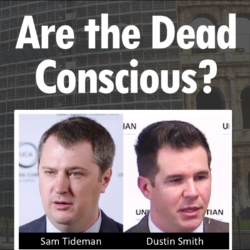Listen to this episode on Spotify or Apple Podcasts
This is part 2 of the Why Christianity class.
It’s so easy to universalize our own local context. For example, I (Sean) live in a secular, post-Catholic part of New York state. It would be easy for me to think that most of the state or country or world is just like my area. However, this ethnocentric perspective will not do justice to the data we have about Christians in the world today. Sociologists have long held to the “secularization thesis”–the idea that world religions die out as societies improved education, technology, and health-care. Is this what we see happening globally? Join me in this episode as we explore the data from a number of sources to get a lay of the land. How popular is Christianity today?
—— Links ——
- See other episodes of Why Christianity
- More episodes about defending your faith here
- Join our Restitutio Facebook Group and follow us on Twitter @RestitutioSF
- If you’d like to support Restitutio, you can donate here
- Leave a voice message via SpeakPipe with questions or comments
- Intro music: Good Vibes by MBB Attribution-ShareAlike 3.0 Unported (CC BY-SA 3.0) Free Download / Stream: Music promoted by Audio Library
—— Notes ——
Objective: to understand the local and global religious landscapes in light of Christianity’s popularity and its claims about Christ’s universal supremacy.
Secularization Thesis
“The seminal social thinkers of the nineteenth century—Auguste Comte, Herbert Spencer, Émile Durkheim, Max Weber, Karl Marx, and Sigmund Freud—all believed that religion would gradually fade in importance and cease to be significant with the advent of industrial society.” -Pippa Norris and Ronald Inglehart, Sacred and Secular, p. 3.
Future Projections
Religion, especially Christianity, Islam, and Hinduism, is expected to either keep pace with population growth or surpass it while non-religious ideologies are predicted to fall 3% by 2050.
Universal Claims about Christ
Scriptures that make big claims about Christ’s cosmic importance:
– Colossians 1:19-20; 2:1-3
– Ephesians 1:9-10
– Philippians 2:9-11
Christianity’s geographic distribution testifies to its transnational, transracial, transcultural appeal.







Hello Mr. Finnegan,
I love listening to your podcast— so good and such a blessing. Also have really liked the apologetics series so far! So glad you (and Mr. Wierwille) decided to do one, for I had really been wanting to hear apologetics from Biblical Unitarians!
One question though… Where is the intro music?! I miss it— seriously— so please bring it back! (Don’t tell Mr. Tuggy, Mr. Schlegel, or Mr. Cain, but you have the best intro music 🙂
Blessings,
Cate